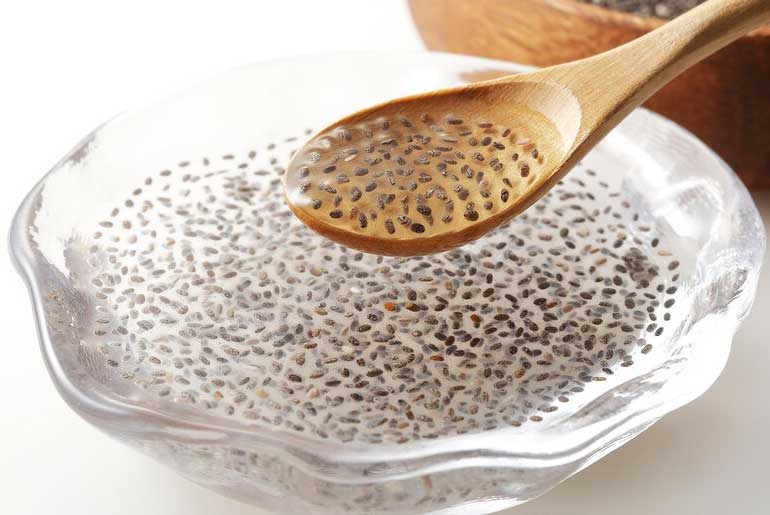With the rising popularity of chia seeds as a superfood, many influencers and health experts have cautioned against consuming them dry. A recent video featuring Dr. Rajan tackled this concern head-on. The video begins with Dr. Rajan responding to a creator warning about the risks of eating chia seeds without soaking, accompanied by a visual demonstration of how dry seeds could swell inside the digestive tract if not pre-soaked.
What Happens When Chia Seeds Are Soaked?
Dr. Rajan explains that chia seeds have a unique outer layer that contains mucilage, a type of soluble fiber (polysaccharide). When these seeds are soaked in water, the mucilage absorbs the liquid and forms a sticky, gelatinous layer — humorously referred to as “plant lube”. This gel-like substance plays several important roles in digestive health and nutrition. It acts as a prebiotic, feeding beneficial gut bacteria, helping to keep you full, and assisting in regulating cholesterol levels. Additionally, soaking chia seeds makes essential nutrients such as protein, omega-3 fatty acids, and various micronutrients more bioavailable, meaning your body can absorb and use them more effectively.
Is It Safe to Eat Chia Seeds Dry?
Despite the clear benefits of soaking, Dr. Rajan emphasizes that eating chia seeds dry is not necessarily harmful for most people. Many individuals sprinkle dry chia seeds on moist foods like smoothies, yoghurts, and oatmeal, where the surrounding liquid allows the seeds to swell safely. Additionally, several commercial food products contain dry chia seeds. The key here is hydration — consuming dry chia seeds with enough fluids or in moist meals usually poses no issue.
Why Do Some People Experience Choking or Blockages?
Dr. Rajan addresses the rare but scary reports of people experiencing choking or gastrointestinal blockages after consuming dry chia seeds. These cases typically involve individuals who have underlying medical conditions such as a narrowed esophagus, intestinal strictures, or sluggish gut motility. In such cases, the dry seeds may expand too rapidly or in the wrong place, leading to complications. While alarming, Dr. Rajan emphasizes that such incidents are extremely uncommon in healthy individuals.
Soaked Chia Seeds for Sensitive Guts
People with sensitive digestive systems, especially those with IBS (Irritable Bowel Syndrome), may find pre-soaked chia seeds much easier to tolerate. When chia seeds are soaked, the fiber is already partially hydrated, making it less likely to trigger bloating, cramping, or discomfort. Soaking for 10 to 20 minutes is usually sufficient. This method softens the seeds and activates their digestive benefits while minimizing potential gut irritation.
Final Advice: Choose Based on Your Body
In conclusion, while soaking chia seeds enhances their health benefits and is preferable for individuals with digestive sensitivities, consuming them dry is generally safe as long as adequate fluids are consumed. Dr. Rajan reassures viewers that there is no need for alarm if you enjoy dry chia seeds in your meals. However, he suggests that for optimal digestion and nutrient absorption, soaking remains the gold standard. He also notes that similar gel-forming effects can be achieved through other fiber-rich foods like psyllium husk and flax seeds.
Disclaimer:
The information contained in this article is for educational and informational purposes only and is not intended as a health advice. We would ask you to consult a qualified professional or medical expert to gain additional knowledge before you choose to consume any product or perform any exercise.








